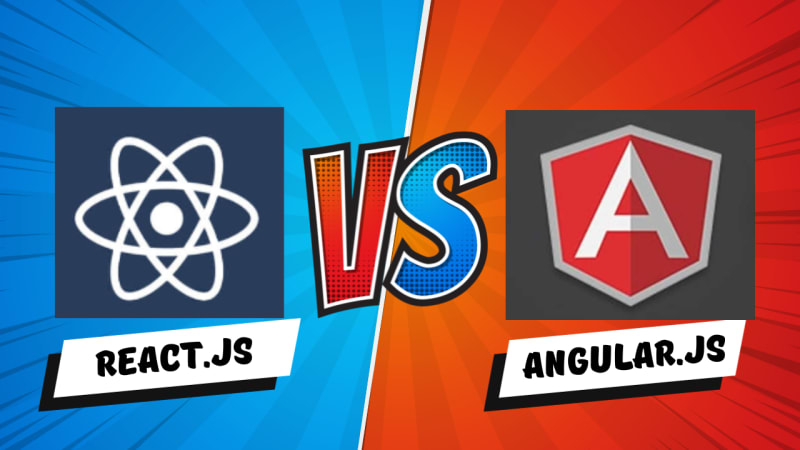In the world of web development, choosing the right framework is crucial for building efficient, scalable, and maintainable applications. React and Angular are two of the most popular JavaScript frameworks, each with its own set of advantages and use cases. Let's delve into the strengths of each to help you make an informed decision based on your specific requirements.
React: A Library for Building User Interfaces
Flexibility and Simplicity:
React is often praised for its simplicity and flexibility. It's a library for building user interfaces, which means it focuses solely on the view layer. This simplicity allows developers the freedom to choose and integrate other libraries and tools as per their project needs.Virtual DOM:
React utilizes a virtual DOM, a lightweight copy of the real DOM. When changes are made in a React application, they are first applied to the virtual DOM. React then calculates the most efficient way to update the real DOM, resulting in improved performance and a better user experience.Community and Ecosystem:
React boasts a large and active community, providing a wealth of resources, tutorials, and third-party libraries. This thriving ecosystem simplifies problem-solving and accelerates development.JSX:
React uses JSX, a syntax extension that allows mixing HTML with JavaScript. This approach enhances component readability and makes it easier to visualize the structure of UI components.
Angular: The Comprehensive Framework
Full-Fledged Framework:
Angular is a complete, opinionated framework designed to address a wide array of development challenges. It provides ready-to-use solutions for tasks like routing, state management, form handling, and more. This comprehensive nature simplifies decision-making and ensures a consistent development experience.TypeScript:
Angular is built with TypeScript, a superset of JavaScript that adds static typing to the language. TypeScript enhances code quality, catches errors during development, and improves overall maintainability of large-scale applications.Dependency Injection:
Angular’s dependency injection system facilitates the development of highly testable and maintainable code. It allows for easy management of component dependencies and promotes modular, decoupled architectures.Official Support:
Being developed and maintained by Google, Angular enjoys strong backing and support. Regular updates, extensive documentation, and a well-defined release cycle ensure that developers can rely on Angular for long-term projects.
Conclusion: Choose What Fits Your Needs not choose blindly
React, as a library, provides developers with the building blocks for creating user interfaces while leaving other architectural decisions open. Angular, as a comprehensive framework, offers a structured and opinionated approach, guiding developers through the entire application development lifecycle.
If you prefer a lightweight library, value flexibility, and enjoy a vast, supportive community, React might be the right choice for you. On the other hand, if you need a comprehensive framework with built-in solutions, strong typing, and official backing, Angular could be the ideal fit.
Always Remember, both React and Angular have their merits, roses, bullets, and the "best" framework varies from project to project. Evaluate your needs carefully, consider your project requirements.
Happy coding!







Top comments (2)
I started my frontend career with Angular.
Well Done!